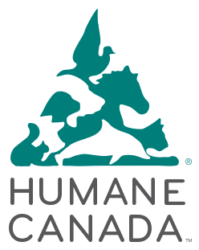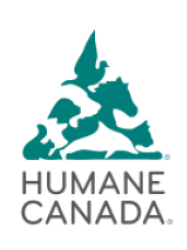There was a time when the family farm was the predominant supplier of meat, eggs and dairy products across Canada. But times have changed, and the family farm model has mostly been replaced by intensive farming practices on large factory farms. With it, the treatment of animals has changed – and not for the better. As recently as a decade ago, few governments around the world had regulations or standards to ensure even a minimum standard of humane treatment for farm animals.
In 1994, the Royal SPCA in the United Kingdom took the initiative to introduce a farm animal welfare certification and labeling program called Freedom Food. The Freedom Food program established welfare standards that required food producers certified under the program to raise their animals in a manner consistent with the animal welfare principles of the Five Freedoms.
Since then, there has been an enormous growth in consumer demand for assurance that the meat, eggs and dairy products consumers are buying come from producers who treat their animals humanely. Various humane food certification programs now exist across North America and Europe, along with the use of labels such as cage-free, free run and free range on animal food products.
Certification in Canada
In Canada, we have the following food certification programs, which all address farm animal welfare issues:
SPCA Certified
In the late 1990s, the BC SPCA decided it was time to introduce an animal welfare certification program to British Columbia and, in 2002, the program was officially launched.
It was developed with the goal of supporting change to animal welfare in BC through the use of scientific research and with the incorporation of third party audits for the agricultural industry. Standards are more stringent than those in Canada’s codes of practice for industry and are based on the principles of the Five Freedoms for animals: freedom from hunger and thirst; freedom from distress; freedom from discomfort; freedom from pain, injury and disease; and freedom to express behaviours that promote well-being.
To meet the standards, farmers:
Must not use crowded, confinement housing (i.e.: battery cages, gestation stalls, veal calf crates). Further, these farmers must provide enrichment to their animals’ environments and they ensure painful practices are minimized or eliminated.
SPCA Certified farmers ensure that:
- Egg-laying hens are free from cages
- Pregnant pigs are free from confinement in gestation stalls and farrowing crates
- Painful practices like dehorning, mulesing (sheep) and toe clipping (poultry) are prohibited
- Pain medication is used for necessary farming practices that cause pain
- Animal environments are designed to promote comfort, positive natural behaviours and healthy social interactions
- Animals are not fed antibiotics or hormones for growth enhancement
- Sick and injured animals receive immediate medical attention and follow up
- Lameness (inability to walk properly) in farm animals is assessed and immediately addressed
The program is voluntary and producers must apply, after which they are inspected and approved if they meet the SPCA Certified standards. For more information on SPCA Certified, go here.
Certified Organic
In Canada, organic farmers are certified according to a single set of national standards – the Canadian Organic Standards. The standards for animal care are quite similar to the SPCA Certified standards, including:
- Prohibition on battery cages for hens, tie stalls for cows and gestation/farrowing stalls for sows
- Minimum space requirements that far exceed industry standards
- Requirements for nest boxes, perches, bedding and/or rooting material
- Prohibition on tail docking of dairy cows
- Outdoor access required for all animals
- Prohibition on forced moulting of poultry
Since 2009, federal organic standards have been backed by government regulation and oversight. For more information on organic certification, go here.
Unverified labels: free range, free run, cage free, grass fed…
In addition to the certification programs described above, there are various terms used on food packaging that are meant to address animal welfare concerns. For instance, the following two terms are commonly seen on egg cartons:
Free Run: hens are kept in open barns, uncaged, with no access to the outdoors
Free Range: hens are kept in open barns, uncaged, with regular access to the outdoors
It is important to note that hens raised in either of these cage-free systems may still be kept in very crowded conditions inside the barn, though that will soon be changing due to the creation of Canada’s first cage-free standards for the egg industry, which were finalized and released in 2017. Note that, in Canada, there is no independent inspection or verification to ensure that producers using these labels are in fact raising their animals in the method indicated.
In order to be sure that egg or poultry products come from cage-free chickens, consumers in Canada should always look for certified organic, SPCA certified or Certified Local Sustainable labels. Producers certified to meet these standards have been inspected to make sure their chickens are kept in free-range or free-run conditions, and also that they are given a minimum space allowance far higher than the industry norm.
The same goes for terms like grass fed, nest laid or pasture raised and so on. Producers who use these labels on their products have not been inspected to make sure they’re raising their animals in the method indicated, unless they are also certified under a program that audits and inspects to verify compliance.
How does certification work?
Farm animal welfare certification is a method of assuring consumers that the animals used to produce their meat, dairy and egg products were raised according to standards that are more humane than normal industry practices. Farmers voluntarily apply to be certified and inspections are carried out to verify animal welfare practices on the farm. Once the farms are a part of the program, they are entitled to use a logo on their product packaging to identify them as certified under that labeling system.
The label assures that animals have been raised according to the standards established by the certifying organization. While these standards vary from one certification program to the next, they usually include a prohibition on using pharmaceuticals or hormones to promote growth or production, a prohibition on using cages or stalls that dramatically restrict movement (such as battery cages for hens, tie stalls for cattle or gestation stalls for pigs) and housing that allows animals to express natural behaviours that are required for their well-being (i.e.: nest building, foraging, rooting).

